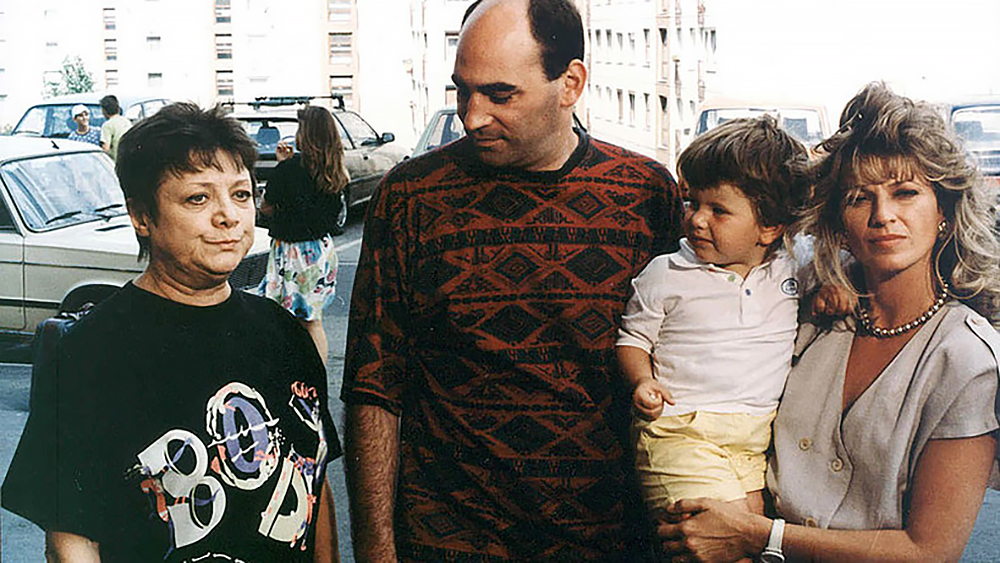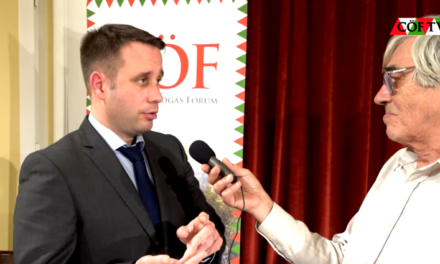We stare at the box. The system change, the period of system change has come, the Szabó family became Neighbors, something new, something different, and yet uncomfortably the same. A triumph of mediocrity instead of a life-affirmation. Bloodsuckers, energy vampires dressed in different characters, apparently people, but in reality they are crows, soul thieves - writes writer, journalist and researcher Gábor Mező in his Facebook post .
"From another point of view, they are the honest, "hard-working" little people, for example, the always-complaining "Aunt Lenke" hiding at home. During the entire series, she sucks the blood of her husband, "Uncle Taki", who for some reason leaves it. In reality, these marriages will become family tragedies. "Aunt Lenke" flies out of the window on a sad Friday morning, after a long, even boring aria of complaints.
And in the series? "Taki" works as a taxi driver, but he's not well-off, nobody understands how, they don't get by, they don't even want to. They love this prole existence, they love it and hate it. They change a house with a garden to a panel, but they settle for it.
Nobody lifts them up, and they like to get stuck in the mud.. "Aunt Lenke" can't leave the shop either, she works even when she's old, toting and kicking the lazy, inattentive young people, loyally following her former boss, whom she despises inside of course. Sometimes "Uncle Taki" also wants to switch, but the mechanic he tries at is of course a fraud. It is written on his portrait. He's only interested in money and bullshit. Where is this from the good communists of the old days?
"Uncle Taki" is also a real moralist, he does not choose, cannot choose this path. He doesn't deserve to be wealthy.
Few people know, but Ferenc Zenthe, who personified the character, worked hard for recognition, in order to be able to act at all. In the early 1940s, he went to the hadapród school in Nagyvárad, where my grandfather went. In the eyes of Mátyásék Rákosi, this was not exactly the best "letter of recommendation". It's no coincidence that the immensely likable Zenthe played the Tenkes captain so well, he was a soldier himself, he fought in the Second World War, so he received the stamp of the communists after '45. He flicks his forehead. Just make sure to rub it off.
Here, too, reality and fairy tales merge: "Uncle Taki", i.e. Ferenc Zenthe, can be happy to be alive, to be able to work at all, that the transitioning regime has already accepted the talented "class enemies", those who survived the openly murderous version of the dictatorship. "Uncle Taki" can hang out, he has an apartment, he can live with his wife, we don't know his past, but we can guess that his life couldn't have been easy, he just hardened somehow. He is one of the few positive, optimistic characters in the series, he should counterbalance the endless bitterness and sourness that emanates from the others. Of course, you should listen to the eternal crooning of "Aunt Lenke", which was authentically performed by the equally excellent Juci Komlós. Thinking about it, we can feel the smell of fried meat on Sunday lunches, the silk sugar placed on the table and the inability to achieve elevation and happiness.
"Uncle Taki" himself is a model husband, he doesn't drink, he doesn't smoke, he doesn't marry, he doesn't play cards and above all: he tolerates. This is the key action. Tolerance.
In the world of Neighbors, only the little man has truth, only the prole can be honest, the rich are usually snobs, unattainable, rude. The leftist pseudo-morality works, just as "Uncle Taki" and "Nagy Fehér" [does anyone know what the hell that means?] refuse to ascend. Proudly!
The latter is the saint of the series: Doctor Mágenheim. The demigod doctor is clearly the alter ego of the bald director, Ádám Horváth. Somewhere it's funny or sad that someone is so full of himself. He forms a character who impersonates him.
Ádám Horváth, the good communist. Or the good leftist. Call it whatever you want. Few people know that after '94 he was Gyula Horn's executor, Luca Brasija, since he personally ordered the "cleansing" of the TV as the end of the Media War. As they said in The Godfather, sometimes you have to pull out the mattresses, there will be gang wars and showdowns when the bad blood is drained. This is exactly what Horváth did as TV president. After 1994, Gyula Horn sent more than a hundred right-wing TV personalities and experts at the same time, on explicit or unspoken orders. Here is the reality of the "Great White".
Ádám Horváth in the series as Mágenheim - played by the brilliant János Kulka - does almost nothing but good. The sage of the Neighbors is almost an extended, taller, liberalized Mátyás Rákosi. He even tolerates his annoying wife, his ugly, fat and big-mouthed daughter - played by the extremely weak and antipathetic Anita Ábel. Not to mention his moral choices. Although he works a lot, he still doesn't change. One day he starts working in private practice, but hates the less work and more money so much that he prefers to leave.
After all, money stinks. It's a capitalist thing. Already in the series.
Of course, he is also human somewhere. He will have a lover. In fact: his lovers. We, the viewers, understand this too. In other words: we have to understand. He does enough for the people to be able to afford it. Old comrades also made mistakes. The point is to learn from it!
Mágenheim is undoubtedly the idol of women, but he is also a huge authority, he could also be a "great doctor" - just as Ádám Horváth is also a great director, obviously an István Szabó - but no, because he chooses the little people, just like Horváth. Just nothing ambitious. Just nothing serious career. It's a better idea to gut ourselves and get stuck in the mud. No one lifts us up.
Let's just accept it. The swamp is warm somewhere. Cuppan and soft. This is the settlement of the little people.
Well, the Neighbors talked about this too [also?].
Now I am reminded of the brilliant song of the band Kex, Zöld-sarga. That's the end of it.
"In the mouth of soldiers
The ends of my strength
They suck my blood
Just don't listen to me!
Just don't let me die!
Just don't let me die!"
Just don't do that, Etus."













